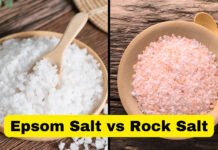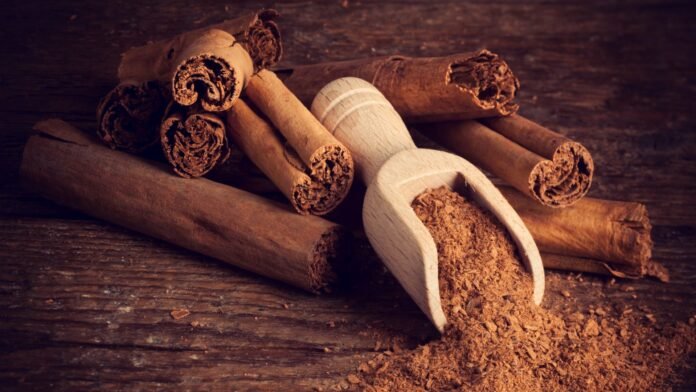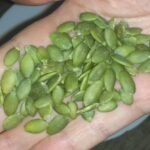Cinnamon is one of the most beloved spices in the world. It’s sweet, spicy, and adds a warm touch to your favorite dishes and drinks. You’ll find it in everything from morning oatmeal to chai lattes. And beyond taste, cinnamon is also praised for its many health benefits. It’s believed to help regulate blood sugar, reduce inflammation, support heart health, and even aid in weight loss.
But what if we told you that something so good could also be secretly harming your health? Yes, cinnamon has a darker side—especially when it’s misused. Millions of people are unknowingly making mistakes with cinnamon that can lead to liver damage, digestive issues, and even toxic build-up in the body.
In this post, we’ll explore 6 dangerous cinnamon mistakes that you might be making every day—and how to avoid them. By the end, you’ll know how to use cinnamon the smart and safe way.
1. Using the Wrong Type of Cinnamon
Not all cinnamon is created equal. There are two main types of cinnamon you should know about:
- Cassia cinnamon – This is the most common type found in grocery stores. It’s cheaper and has a stronger flavor.
- Ceylon cinnamon – Also known as “true cinnamon,” this type is more expensive but also much safer for long-term use.
So, what’s the problem with Cassia cinnamon? It contains a chemical called coumarin, which can be toxic to the liver in large amounts. Taking high doses of Cassia cinnamon over time can increase your risk of liver damage, especially if you already have liver issues.
How to fix this mistake:
- Choose Ceylon cinnamon instead of Cassia for daily use.
- Read labels carefully when buying cinnamon or cinnamon supplements.
- If the label doesn’t specify the type, it’s probably Cassia.
2. Taking Too Much Cinnamon
When it comes to cinnamon, more is not always better. While a little cinnamon can benefit your health, too much can lead to serious problems.
High intake of cinnamon, especially Cassia, can cause:
- Liver damage
- Breathing problems
- Mouth and throat irritation
- Blood sugar levels that drop too low
- Increased heart rate
The recommended limit for Cassia cinnamon is about ½ teaspoon per day. Ceylon cinnamon is safer, and you can take up to 1 to 1.5 teaspoons per day, but it’s still wise to stay moderate.
How to fix this mistake:
- Limit your cinnamon intake, especially if you’re using it daily.
- Be cautious with recipes or supplements that use high amounts of cinnamon.
3. Mixing Cinnamon with Certain Medications
Cinnamon might seem natural and harmless, but it can actually interact with some medications in dangerous ways. This is especially true for people with existing health conditions.
Cinnamon can interact with:
- Blood thinners (e.g., Warfarin)
- Diabetes medications (because it lowers blood sugar)
- Liver medications (due to the liver-processing effects of coumarin)
These interactions can cause your medications to work too strongly or produce unexpected side effects.
How to fix this mistake:
- If you take any prescription medication, talk to your doctor before adding cinnamon supplements or increasing your intake.
- Be extra cautious if you’re already managing blood sugar or liver-related health conditions.
4. Taking Cinnamon on an Empty Stomach
Many people consume cinnamon first thing in the morning—either in warm water, smoothies, or as part of a detox drink. While this may seem like a healthy habit, taking cinnamon on an empty stomach can cause unwanted side effects.
These may include:
- Nausea
- Acid reflux
- Stomach irritation
- A sudden drop in blood sugar (which can make you dizzy or weak)
Cinnamon is strong and spicy. Without food to buffer it, it can be too harsh on your stomach lining.
How to fix this mistake:
- Always consume cinnamon with food to reduce irritation.
- Add it to breakfast foods like oatmeal, yogurt, or smoothies instead of drinking it alone.
5. Trusting Low-Quality Cinnamon Supplements
Cinnamon supplements are available in pill, capsule, and extract form. They’re often marketed for blood sugar control and weight loss. But not all supplements are created equal.
Some low-quality cinnamon supplements:
- Use Cassia cinnamon, which contains high levels of coumarin.
- Are not tested for purity and may contain harmful additives or fillers.
- Provide very high doses that can be harmful if taken regularly.
How to fix this mistake:
- Choose supplements that clearly state they contain Ceylon cinnamon.
- Look for brands that are third-party tested for safety and quality.
- Don’t exceed the recommended dosage without medical guidance.
6. Ignoring Hidden Cinnamon in Packaged Foods
Cinnamon isn’t just in your spice rack or morning tea. It’s hidden in many processed and packaged foods, such as:
- Breakfast cereals
- Granola bars
- Flavored teas and coffees
- Protein powders
- Packaged baked goods
If you’re already using cinnamon at home, these hidden sources can push your daily intake above safe levels without you realizing it.
How to fix this mistake:
- Read food labels carefully.
- Add up your total daily cinnamon intake from all sources.
If you’re getting a lot from packaged foods, reduce the amount you add yourself.
The Bottom Line: Cinnamon is Powerful — Use it Wisely
Cinnamon is a natural powerhouse when used correctly. It has been linked to many health benefits including better blood sugar control, reduced inflammation, and improved heart health. But it’s also easy to misuse.
To recap, here are the 6 cinnamon mistakes you must avoid:
- Using Cassia cinnamon instead of Ceylon
- Taking too much cinnamon
- Mixing cinnamon with medications without advice
- Taking cinnamon on an empty stomach
- Trusting poor-quality supplements
- Ignoring hidden sources of cinnamon in packaged foods
By being aware of these dangers and making simple adjustments, you can enjoy the benefits of cinnamon without putting your health at risk.
FAQs About Cinnamon Safety
Q: Can I use cinnamon every day?
A: Yes, but in moderation. Stick to ½ teaspoon daily if using Cassia, or up to 1.5 teaspoons if using Ceylon.
Q: What are signs of cinnamon overdose?
A: Watch for nausea, low blood sugar, breathing problems, or liver discomfort.
Q: Is Ceylon cinnamon more expensive?
A: Yes, but it’s worth the cost due to its safer profile and lower coumarin content.
Q: Can kids eat cinnamon safely?
A: Yes, in small amounts. Avoid giving large amounts or supplements without pediatric approval.
Final Thoughts
Cinnamon can be both a healing spice and a harmful one, depending on how you use it. The key is to stay informed. Always choose quality, control your quantity, and check interactions with medications.
By avoiding these 6 mistakes, you’ll not only protect your body—you’ll also unlock the true health benefits of this ancient spice.















